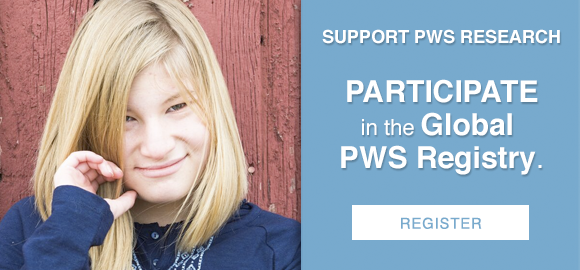Prader-Willi syndrome (PWS) impacts many parts of our children’s lives. While the hallmark challenge is hyperphagia—an uncontrollable, excessive appetite—there’s much more beneath the surface. Children and adults with PWS often face behavioral and emotional struggles, including anxiety, rigid thinking, repetitive questioning, temper outbursts, and skin picking. These symptoms can affect not only the individual but also their entire family’s quality of life.
 As a patient advocacy organization, FPWR is deeply committed to accelerating research that leads to effective treatments for all these challenges. To do that, researchers need reliable ways to measure whether new medicines or therapies truly make a difference.
As a patient advocacy organization, FPWR is deeply committed to accelerating research that leads to effective treatments for all these challenges. To do that, researchers need reliable ways to measure whether new medicines or therapies truly make a difference.
Why Measuring PWS Symptoms Is So Important—and So Challenging
When developing new treatments, researchers need a reliable way to show potential improvements in symptoms.
For many medical conditions, measuring treatment success is straightforward. For example, changes in weight or blood hormone levels are easy to track. But with PWS, many of the symptoms are behavioral or emotional features that are complex and unique to this syndrome. This makes it difficult for researchers to prove whether a new treatment is working.
To solve this problem, researchers need tools specifically designed for PWS—tools that can capture the real-life struggles our loved ones face every day, like rigid thinking, anxiety and depressive symptoms, repetitive questions, temper outbursts, and skin picking.
Introducing the PWS Profile: A Breakthrough Assessment Tool
Until recently, the only well-established measure for PWS clinical trials was the Hyperphagia Questionnaire for Clinical Trials (HQ-CT), which helps evaluate hyperphagic behaviors that are common in PWS. But what about all the other behavioral and emotional symptoms?
Thanks to a dedicated research team at Vanderbilt University, including Elisabeth Dykens, Elizabeth Roof, and Haille Hunt-Hawkins, a tool called the PWS Profile was developed. They recognized the critical need for a PWS-specific tool to evaluate treatment efficacy in clinical trials aimed at reducing behavioral and emotional problems in PWS, and designed a tool to specifically measure the full range of PWS-specific behaviors and emotional challenges, extending beyond hyperphagia.
How Was the PWS Profile Developed?
Creating the PWS Profile took years of collaboration between researchers, families, and clinical experts. The team worked closely with parents of individuals with PWS to ensure the questionnaire truly reflects real-world experiences.
The final questionnaire includes 57 carefully crafted questions, and was tested with 761 parents of children and adults with PWS aged 5 and up through the Global PWS Registry. This large, diverse group helped ensure the tool accurately captures the challenges faced across the PWS community.
What Does the PWS Profile Measure?
The PWS Profile assesses eight key areas:
- Rigidity and insistence on sameness
- Aggressive behaviors
- Repetitive questioning and speech
- Compulsive behaviors
- Depression and anxiety
- Hoarding tendencies
- Negative distorted thinking
- Magical distorted thinking
There is also a smaller category focused on skin picking, a common behavior in PWS.
The PWS Profile has proven to be a reliable and valid tool, meaning it consistently measures what it’s supposed to and reflects the true experience of individuals with PWS. It works independently of IQ, weight, or family income, making it broadly applicable.
What’s Next? Using the PWS Profile to Improve Care
With the PWS Profile now available, it can be easily used in future clinical trials to evaluate the impact of medications and behavioral interventions not only on hyperphagia but also on the emotional and behavioral problems that are common in PWS. Additionally, the profile can also be used to track the natural history of a wide range of PWS symptoms over time.
This important advancement wouldn’t be possible without the families who participate in studies like the PWS Global Registry and the PATH for PWS study. Your contributions provide the data that drive progress and give hope for better treatments ahead.
Together, we’re building a clearer picture of PWS—and with tools like the PWS Profile, we’re closer than ever to treatments that truly make a difference in the lives of our loved ones.








